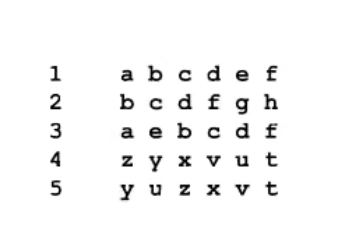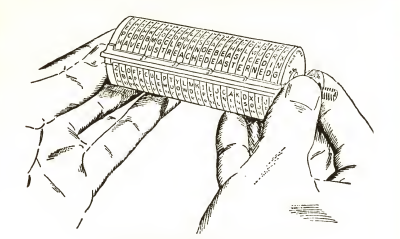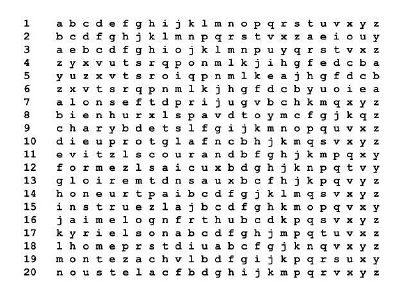(→Goal:) |
(→Goal:) |
||
| Line 29: | Line 29: | ||
Step one: Build a prototype of a decipher machine from the wood. | Step one: Build a prototype of a decipher machine from the wood. | ||
[[File:My config1.png|400px]] | [[File:My config1.png|400px]] | ||
Step two: attach sensors to letters on every disk, work with arduino to have output on computer. | Step two: attach sensors to letters on every disk, work with arduino to have output on computer. | ||
Use sensor outputs to map letters | Use sensor outputs to map letters | ||
Revision as of 21:36, 28 November 2022
David Kahn, The Codebreakers (New York: Macmillan Co., 1967)
Wheel cypher
Originally invented by Thomas Jefferson in 1795
Jefferson's wheel is a polyalphabetic cipher that uses a cylinder made of 36 disks with vertical rotating wheels. It was "re-invented" several times and in the early 20th century, Designated as M-94. it was used by the Army and other military services from 1922 to the beginning of World War II.
How does it work?
The series of disks define 26 rows, each of 20 random letters. A message is encoded by rotating the disks one at a time so that one of the rows (and it does not matter which row) matches the text of the message. The ciphertext is then taken to be the letters read across any other row.
This ciphertext is decrypted by the intended recipient, who has an identical wheel, by rotating the disks so as to match the ciphertext across one of the rows. The recipient then locks the disks in that position and turns the whole apparatus until a message that makes sense is observed across a row.
Goal:
Interactive decipher device
Step one: Build a prototype of a decipher machine from the wood.

Step two: attach sensors to letters on every disk, work with arduino to have output on computer. Use sensor outputs to map letters

